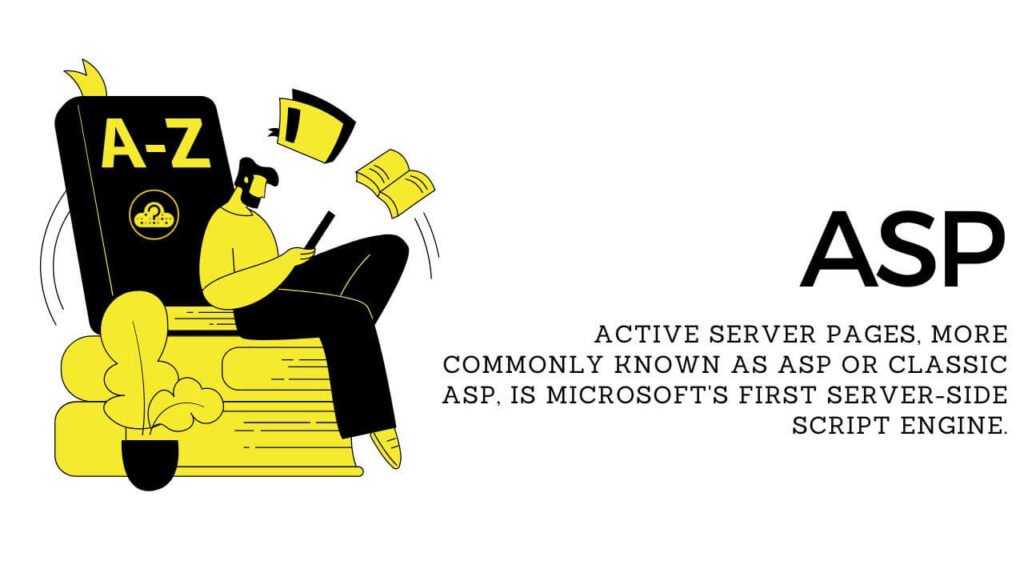What Is ASP?
Active Server Pages (ASP) is an open, compile-free application environment for creating Web applications for Microsoft Internet Information Server (IIS) version 3.0 and higher.
ASP Definition

- Short Definition:
- Microsoft’s initial server-side scripting language and engine for generating interactive web pages.
- Extended Definition:
-
Active Server Pages, more commonly known as ASP or classic ASP, is Microsoft’s first server-side script engine that allowed web pages to be generated dynamically. It was initially released as an add-on to the Internet Information Services (IIS) component of Windows NT 4.0, but later became an integrated part of the Windows Server operating system. The language uses server-side scripting to generate HTML webpages in response to a request from the client. VBScript is the default scripting language for writing ASP, however, other languages can be employed.
ASP makes building dynamic webpages easy by incorporating HTML, VBScript, JScript, and COM components. All of these tools are familiar to programmers and allow them to create powerful websites. The ASP code is executed on the web server, and the output sent to the web browser is simply an HTML file.
How Does ASP Work?
When a client requests an Active Server Page, it is processed on the server. The page contains a combination of HTML, scripts, and other components that are written in any programming language. These scripts can interact with components on either the local or any other accessible server.
Actions such as accessing a database, sending e-mail, or other processing can be performed. The server will then return the result to the client as an HTML file, which will be displayed like any other page.
The technology allows for the creation of web content that is tailored to user preferences and demographics and is equipped with Microsoft ActiveX Data Objects (ADO) and open database connectivity (ODBC) to provide access to numerous data sources. This browser-neutral approach stores all of the application logic on the server. When used in combination with IIS version 4.0 and Microsoft Transaction Server (MTS), ASP-based Web applications can benefit from Transaction Server’s process isolation, scalability, and transaction programming model.
For more definitions, check out our dedicated Definitions List.







